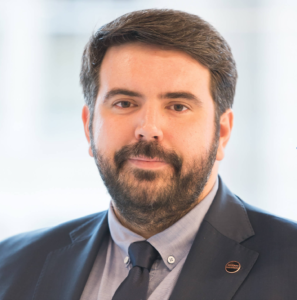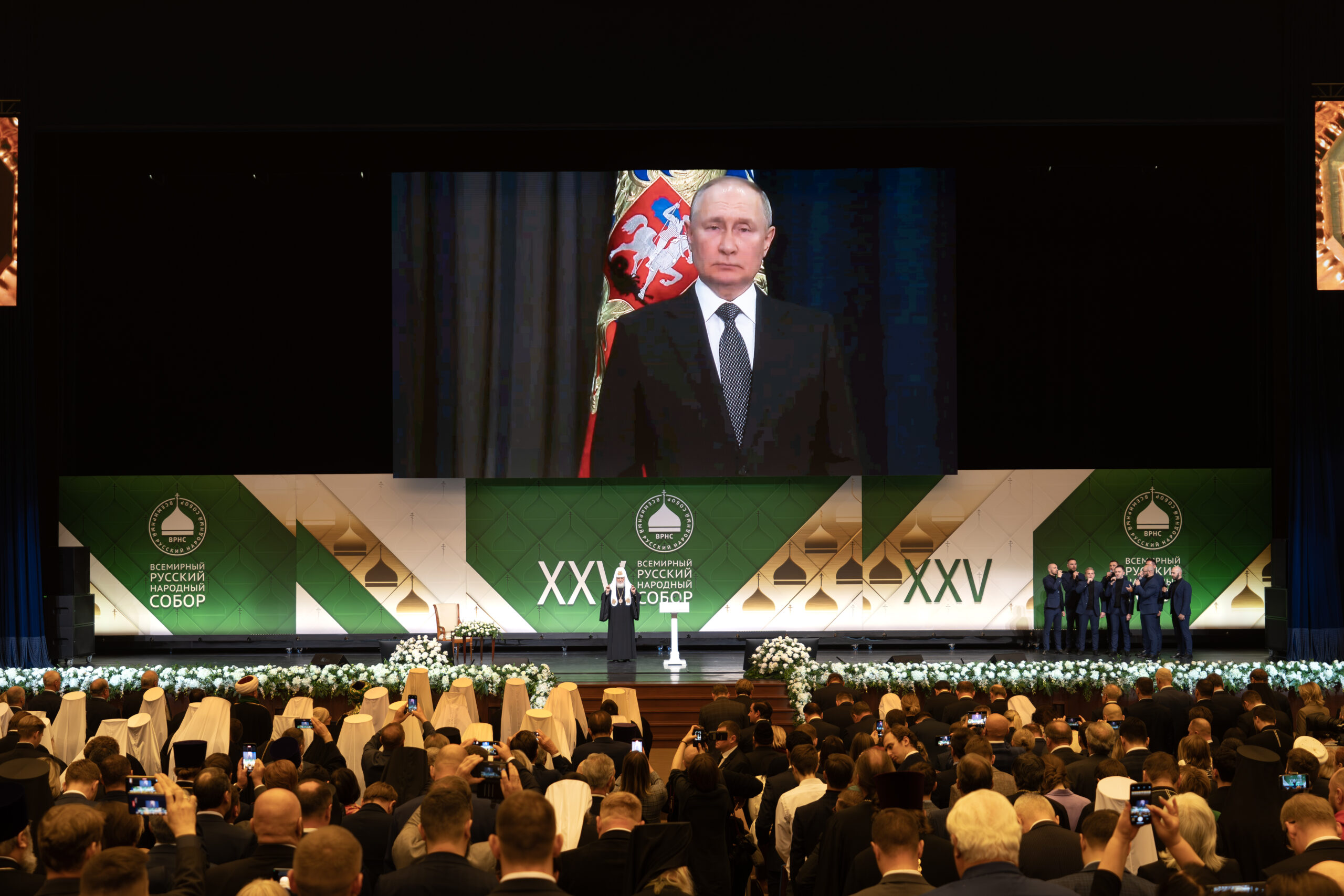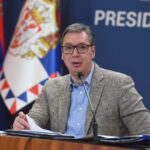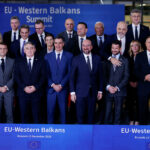The recent address by the Russian Patriarch to the public was not a coincidence. Declaring war in Ukraine as a Holy War emerged from the conclusions of XXV Congress of the World Russian People’s Council, titled “The Present and Future of the Russian World”.
The event took place in Moscow on March 27, 2024, under the chairmanship of Patriarch Kirill of Russia, and led to the programmatic document of the World Russian People’s Council, as well as the conclusions that were sent to the legislative and executive authorities of Russia.
The main takeaway is that the so-called special military operation was defined there as a holy war. An orthodox crusade or orthodox jihad if you wish.
“The special military operation is a new stage in the national liberation struggle of the Russian people against the criminal regime in Kyiv and the collective West behind it, waged in the southwestern regions of Russia since 2014. During the SMO, the Russian people, with weapons in hand, defend their lives, freedom, statehood, civilization, religious, national, and cultural identity, as well as the right to live on their land within the borders of a united Russian state. From a spiritual and moral point of view, the special military operation is a Holy War, in which Russia and its people, defending the unique spiritual space of Holy Russia, fulfill the mission of “Holding”, protecting the world from the onslaught of globalism and the victory of the West, which has fallen into Satanism.”
“After the completion of the Northeast Military District, the entire territory of modern Ukraine should enter the zone of exclusive influence of Russia. The possibility of the existence of a Russophobic political regime hostile to Russia and its people on this territory must be completely excluded, as well as a political regime controlled from an external center hostile to Russia.”
Several weeks earlier, Slavoj Žižek spoke about this on Pierce Morgan, criticizing the sympathies of part of the Western leftist public towards Putin, asserting that Putin’s rule is an example of the right-wing and clerical regime, which is using this narrative about the holy war against the Satanism of the West as a tool for mobilization.
But it seems this is not just a regional Russian orthodoxy problem. The turn towards radical digital discourse within American Orthodoxy is a concerning development, as highlighted by Dr. Sarah Riccardi-Swartz, an assistant professor of religion and anthropology at Northeastern University. In her insightful analysis, she emphasizes that this shift is altering the social fabric of the Church and may have lasting repercussions on faith in the West.
Dr. Riccardi-Swartz points out that some Orthodox Christians, particularly converts, are using social media to propagate a moral Orthodox vision, expressing concerns about the secularization of society and advocating for Orthodoxy aligned with certain far-right political ideologies. However, she argues that this approach does not truly reflect Orthodox theology but rather reflects the broader American culture wars and the influence of modern secularism.
Moreover, she highlights the danger of replacing religion with political ideology, noting the divisive impact of engaging in the culture wars online. Dr. Riccardi-Swartz stresses the importance of addressing this radicalism within Orthodoxy through proper catechetical training and open acknowledgment of the issue by clergy and bishops.
In the Balkans, the context of religious extremism and radicals has long been discussed exclusively in terms of Islam. Numerous projects aimed at countering violent extremism have been dedicated to Islamic radicalization, mostly as a result of terrorist attacks and the emergence of the Islamic State in Syria and Iraq, as well as the large number of volunteers who responded to ISIS’s call and went to war.
The war in Ukraine has been accompanied since its beginning in 2014 by a similar phenomenon among Orthodox Christians in the Balkans, through whose ethno-religious radical organizations fighters for the Russian cause in Ukraine have been recruited.
However, many times since then, it has been missed to discuss this phenomenon in the light of potential Orthodox religious radicalism.
Here, it is not only about the so-called Zealot movement within Orthodoxy, which is condemned by Orthodox communities themselves, but it refers to mainstream Orthodoxy, which increasingly uses extreme and radical discourse in narratives.
In Montenegro in 2019, in response to a controversial law on freedom of religion, a protest movement of the Serbian Orthodox Church was launched, coinciding with the pre-election campaign, after which three governments were replaced, each more or less under the influence of the Serbian Orthodox Church. From the ranks of people close to clerical circles, the prime minister, minister of justice, minister of education, university rector, and head of the intelligence service were recruited.
This was followed by a reassessment in the public of values that were thought to have a broader social consensus. It is about gender and sexual equality, about LGBT people, and about the right to abortion, which are now being debated again and are being challenged again in Montenegro.
Apart from that members of the clergy are more frequently and freely propagating the anti-secularism narrative and the same ideological and political narrative that Dr. Riccardi-Schwartz recognized within the American Orthodox Christian community.
The Serbian Orthodox Church closely communicates and cooperates with the Russian Orthodox Church. The recent death of the head of the SPC in Moscow was an occasion for a recent meeting between the two religious leaders. On that occasion, the submissive behavior of the Serbian clergy to the Russian Orthodox Church was not once again demonstrated.
The rise of hate speech, ethno-religious politicization, and the monopolization of the public morality issue by the SPC in the realms of the claimed Serbian world, which coincides with the Russian world and whose spiritual sponsors are the SOC and the ROC, speaks of an analogy of security threats posed by the radicalization of the most powerful religious communities in Russia and the Balkans.
In Montenegro, Serbia, and Republika Srpska, the process of structuring and formulating radical Orthodox organizations through various Orthodox brotherhoods, Night Wolves, and other extremely right-wing Orthodox organizations has been going on for several years. They feed on patriarchal culture, mobilize their support among former convicts and organized criminal groups, uniform themselves, and organize protests and public demonstrations in support of the Russian campaign in Ukraine. They also call for the unification of Serbian lands, just as the unification of the Russian world is called for in Russia.
It is high time to recognize the danger in this and to initiate mechanisms of de-escalation and deradicalization, especially for young people. Conflict prevention makes sense again in the Balkans, and we must become aware that the threat of religious radicalization is manifold and does not come only from Islam.
The articles published in the “Opinions” column reflect the personal opinion of the author and may not coincide with the position of the Center
Ljubomir Filipović. Montenegrin political scientist




